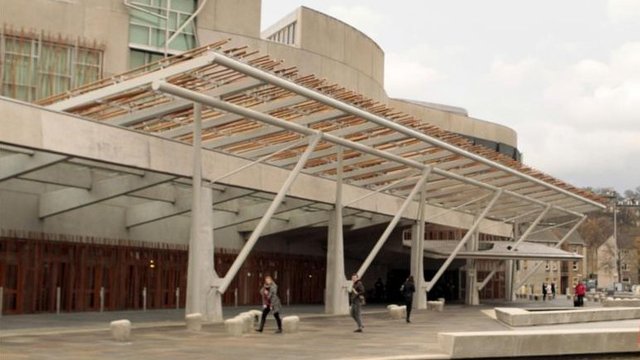Holyrood Votes On Scottish Rate Of Income Tax
21 February 2017, 06:19

Holyrood is to hold a landmark vote setting a Scottish rate of income tax.
Finance Secretary Derek Mackay insisted the Government has ''got the balance right'' on the new powers over income tax and bands after striking a deal with the Greens.
Its tax plans largely follow the Conservative Government at Westminster apart from the top rate.
The minority SNP administration initially planned to raise the 40p rate in line with inflation, instead of increasing the threshold to £45,000 as the UK Government has done.
However, in cutting a deal with the Greens to get the tax plans through Parliament, the proposed rise was scrapped and the top tax rate frozen at £43,000 while £160 million more was allocated to local government.
Mr Mackay said: ''It's an historic day in that for the first time the Scottish Parliament is using the new powers that we have to set tax, and of course we have the power to change the bands if we wish to do so.
''These are new powers that we are using to protect and invest in our public services as part of a social contract.
''Income tax is about to raise close to about £12 billion, so that's a significant sum of the overall budget for Scotland and by making the right tax decisions that allows us to invest in things the people of Scotland care about like the NHS and free education, free personal care, no prescription charges.''
He dismissed criticism from the Conservatives over the difference in higher rate tax between Scotland and elsewhere in the UK, and Labour and Liberal Democrats calls for more use to be made of the tax powers such as a 1p flat rate income tax increase. The Greens had also called for more radical progressive taxation.
He said: ''Some are saying we are raising too much, some are saying we are not raising enough - I think we've got that balance just right.
''The constructive deal that I struck with the Greens should ensure that the Budget is carried through at every stage.
''On our income tax policies, 99% of people will be paying no more on their current level of income. Where there is divergence at the top 10% of income earners the difference between what you pay in Scotland and England is less than the cost of a prescription charge per week, so I think we've got the balance right.
''I think people essentially support the approach we are taking in Scotland, which is fair taxation and sound investment in our public services.''






